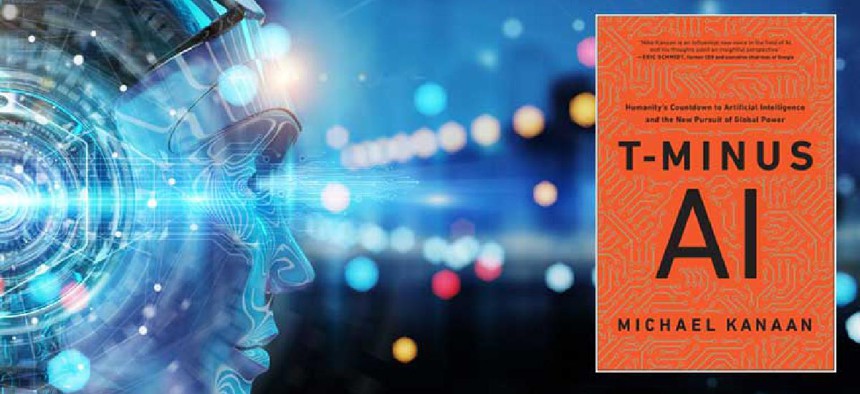Do you really understand AI?

Not everyone can be an expert, but we all need a solid grasp of this transformative technology.
Artificial intelligence is truly transformational. In terms of national security, Defense Secretary Mark Esper has declared that “advances in AI have the potential to change the character of warfare for generations to come. Whichever nation harnesses AI first will have a decisive advantage on the battlefield for many, many years.”
Not every aspect of government has such life-and-death consequences, but both the scope and stakes for AI are vast. Yet too many decisions-makers in government lack even a basic understanding of how AI and machine learning work — let alone the implications of their deployment. With “T-Minus AI,” Michael Kanaan aims to change that.
Kanaan is director of operations at the recently launched MIT-Air Force AI Accelerator and was the Air Force’s first chairman of AI. As his book’s subtitle — “Humanity’s Countdown to Artificial Intelligence and the New Pursuit of Global Power” — suggests, he sees the same strategic race that Esper does. But Kanaan argues that all of us need to educate ourselves on the fundamentals of AI to make the most of it and to ensure that it’s used responsibly.
“T-Minus AI” starts that education at the very beginning. Readers get an introduction to the evolution of human intelligence before Kanaan turns to the artificial variety. He presents refreshers on scientific notation and the exponential power of binary computing before exploring more advanced ideas such as the nature of consciousness and the respective risks of narrow and general AI. Kanaan is an engaging writer, however, so his sprints through history and evolutionary biology are revelatory, not remedial. And by the time the book digs into the differences between shallow and deep neural networks or the ways bias can be built into algorithms, the importance of having that broader context is abundantly clear.
Ultimately, Kanaan argues, there is no “unavoidable endgame” where AI wreaks science fiction-style havoc on humanity. Instead, humans — “and the specific uses to where we ourselves put our machines” — are the primary concern.
“Of the 195 countries in the world, fewer than 30 have specific strategies or initiatives in place for AI, and there are less than 10 international agreements between two or more of them,” he writes. “Separately and together, democracies must work to ensure that AI is developed and implemented only in ways that ensure the rights and freedoms to which their citizens are fundamentally entitled…and that protect their citizens from all contrary uses, whether domestic or foreign.”
That work must be well informed. For the layman, “T-Minus AI” is a very good place to start.
T-Minus AI: Humanity’s Countdown to Artificial Intelligence and the New Pursuit of Global Power
By Michael Kanaan
BenBella Books Inc.
August 2020





